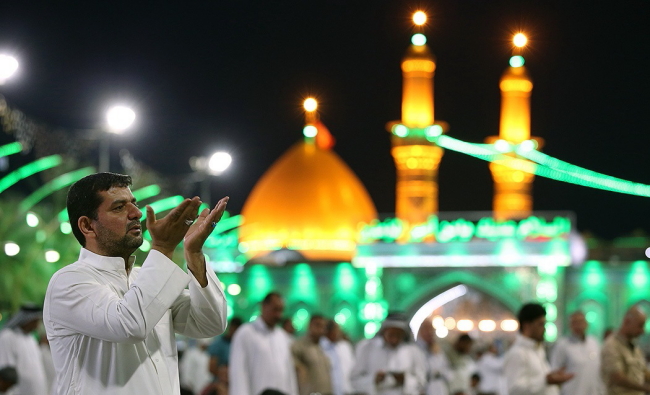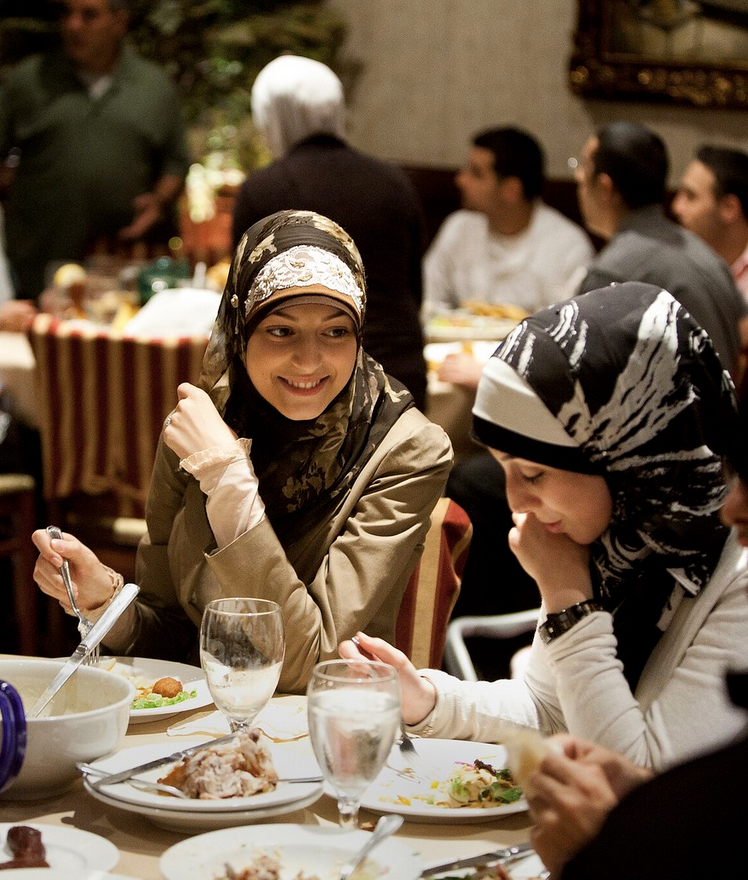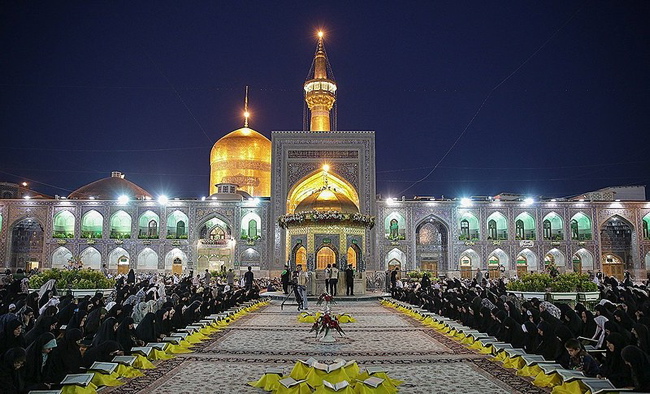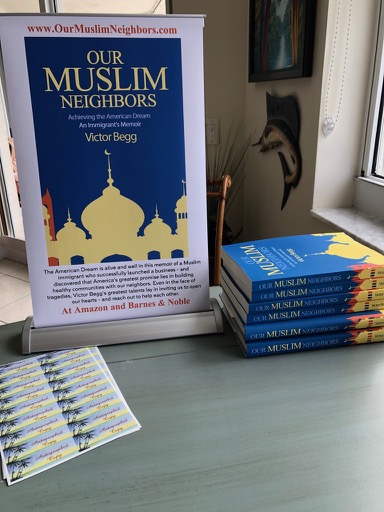
At the Al Abbas Mosque, in Iraq, during a night of Ramadan in 2018. Photo courtesy of Wikimedia Commons
SUNSET WEDNESDAY, MARCH 22: Look to the sky for the sight of a crescent moon, as the world’s 1.8 billion Muslims—nearly a quarter of Earth’s population—begin the month of Ramadan. For Muslims, the period of Ramadan is not fixed: As the Islamic calendar is lunar, the sight of a crescent moon signals the official start of this very important month. (Note: Starting dates in communities around the world may vary by location and by method of calculation, although an official date is always released by Saudi Arabia. This year, it was estimated that Ramadan fasting would officially begin on March 22, but due to the absence of a crescent moon sighting in Saudi Arabia, fasting will instead begin at daybreak on March 23.)
The end of Ramadan—the ninth month of the Islamic calendar—is met with Eid al-Fitr, a festival of the breaking of the fast. Eid al-Fitr marks the beginning of the next lunar month, Shawwal, and is a time of great feasting and family celebrations.
NEWS 2023: London, England is ready for Ramadan, while Premier League and English Football League officials have been asked to provide an opportunity for players to break their fast during evening games across Ramadan, according to ESPN. News sources are finding that Ramadan is now gaining more significant recognition in American public schools, and Yahoo! News reports that a “greener” Ramadan is surging in both popularity and sustainability. With grocery costs rising worldwide, this report from the UK suggests ways to offset or cut increased spending for Ramadan, and this article suggests seven women to follow on Instagram this Ramadan.
Traveling to a Muslim-majority country during Ramadan? This article from Afar suggests ways to embrace this special time of year in these countries.
Looking for recipes? Epicurious has released “A Busy Cook’s Guide to Eating Well During Ramadan,” while the New York Times offers Somalian Ramadan recipes to try this year. This site offers 50 Ramadan recipes to span the entire month, and from the UK, the BBC suggests 45 Ramadan recipes to try.

Muslims break the Ramadan fast with iftar at a restaurant in Dearborn, Mich. Photo by GPA Photo Archive, courtesy of Flickr
FASTING & DATES
Muslims observe the month of Ramadan with a strict sunrise-to-sunset fast, which means that nothing passes the lips during those hours. For all healthy Muslim adults, food and drink (including water) is prohibited. Meanwhile, prayer is increased, as is reading from the Quran. According to Muslim belief, the first revelation of the Quran to Muhammad occurred during Ramadan, and as such, observance of the month is one of the Five Pillars of Islam. During the month of Ramadan, Muslims partake in a pre-dawn meal known as the Suhoor, and do not return to eating until after sunset—with the iftar. Three dates customarily break the fast each day of Ramadan, prior to the iftar.
Fun fact: Though younger children are not required to fast during Ramadan, many attempt to try. To help children keep track of their fasting and see their success, the blog Inspiring the Love of Islam has created a free, downloadable Ramadan fasting tracker for children.
BEYOND FASTING …
Najah Bazzy, author of The Beauty of Ramadan, reminds readers in her opening pages that Ramadan is about far more than denial of food and water during daylight hours. Bazzy, a nationally known expert on cross-cultural healthcare, covers many of the health-related issues in her book. But she calls on a traditional text credited to the Prophet Muhammad for the deeper meaning of this special month. In addition to fasting, prayer and Quran study:
Give alms to the poor and the needy. Pay respect to your elders. Have pity on those younger than you and be kind toward your relatives and kinsmen. Guard your tongues against unworthy words, and your eyes from such scenes that are forbidden and your ears from such sounds as should not be heard. Be kind to orphans.
ZAKAT GIVING & ‘NIGHT OF POWER’
In addition to fasting, Muslims donate to charity during Ramadan. Charity, known as zakat, sometimes translated as “the poor-rate,” is an obligatory practice.
Laylat al-Qadr, or the “night of power,” is considered the holiest night of the year and commemorates the night the first revelation of the Quran was sent to Muhammad. Around the Islamic world, traditions vary for identifying the date of Laylat al-Qadr—though it is generally believed to fall on one of the odd-numbered nights of the last 10 days of Ramadan.

